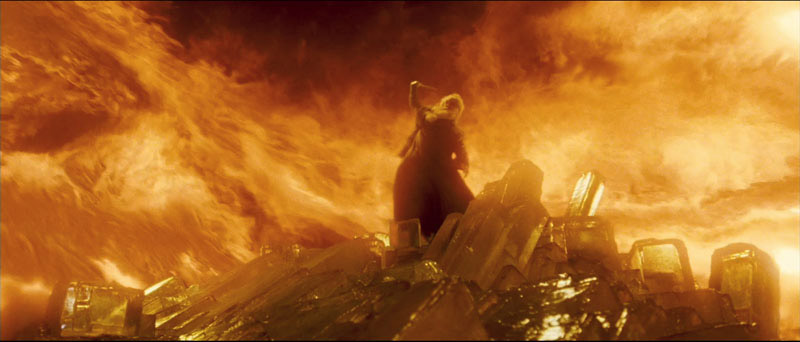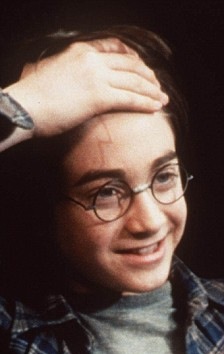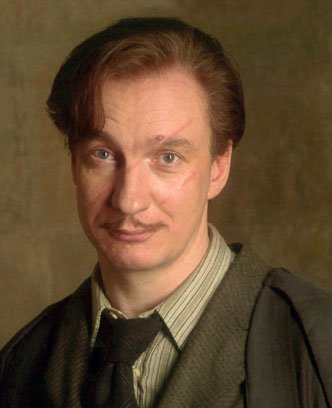
I’ve been thinking lately about what an impossible, impressive task it is to successfully adapt a book, any book, to an effective screenplay. Scenes that are taut and gripping on paper can come out flat onscreen. Lengthy expository monologues have to be condensed to two lines and one musical crescendo. You have to obliterate one character and completely rewrite another. And, if you’re doing Harry Potter, you have 500 million fans waiting outside your apartment with bats and bricks.
As a second introductory note, I’d become convinced by midway through The Prisoner of Azkaban (that’s the third movie, you Muggle) that there was no way the Harry Potter films could ever match the Harry Potter books, even on their own merits. Put another way, I figured a Harry Potter movie could reach a certain level of quality, but would never keep you from muttering “This was told so much better in the book.”

Which is why I found myself so surprised that I fricking loved Harry Potter and the Half-Blood Prince.
Steve Kloves, who’s been the adapter for each of the HP scripts, has grown past his slavish scene-by-scene reconstructions that hampered the first few movies. He feels freer now to take the essential elements of the story, and just work out the best way to string them together in movie form. It’s best to see this movie without the book fresh in one’s mind; then again, it made me all the more impressed to recognize how he tinkered and swapped and fiddled to get a cohesive story together. Small additions, like the opening scene where Harry flirts with a Muggle barista, make the whole thing seem more grounded and realistic.
The three principals have gelled together quite nicely over time. Rupert Grint is now the comedy specialist; Daniel Radcliffe inhabits the Harry Potter character much more fully than when the whole enterprise started. Emma Watson is great as well, though in this movie Hermione’s lovesickness is condensed to the point that she’s sometimes a disappointing blubbering mess. (Side note: I like a girl with some curves on her, but I am putting Emma Watson right next to Keira Knightley on my Hot Waif List™.)

David Yates, meanwhile, is proving the best of the Harry Potter directors – no wonder they’re sticking with him through the final four movies. He strings together interesting shots, edits together a fantastic montage showing Harry’s first encounter with the Half-Blood Prince, and to quote another reviewer, is the first director to “really GET Quidditch.”
The rest of the film’s strength lies in the supporting cast, which has been true of every Potter film, from Kenneth Branagh’s Gilderoy Lockhart to Imelda Staunton’s Dolores Umbridge. (This episode’s big-name guest slot goes to Jim Broadbent, who knocks it out of the park as visiting professor Horace Slughorn.) Some of the fellow students do surprisingly well, too; young Evanna Lynch continues to make me giggle as Luna Lovegood, who sports an expanded role from the book. (Don’t we all know a loopy girl just like her?) After being the obnoxiously EEEEVIL student for five films, it’s a relief that Draco Malfoy gets to display some complexity, too.
It’s a shame that other supporting players, including Hagrid, Lupin, and Tonks, get brief screen time. But it’s a testament to this rich fictional world that it feels so natural for them to come and go in the background, just as people do in real life. (Another clever shorthand: Kloves abbreviates the entire Lupin-and-Tonks love story to a single instance of one calling the other “sweetheart.”)

Okay, there’s a few gripes and flaws in the adaptation; this isn’t the best picture of the year or anything (though it’s probably the best big-budget movie of the summer). I’ll repeat that direct comparison with the book is unwise, but there’s at least one major demolition (to be intentionally vague) that serves no obvious purpose. And Harry’s behavior in the climactic scene makes much less sense than it did in the book when he’d been Stupefied.
Still, I grinned almost the whole way through. Having recently finished the 7th book, I was instantly impatient to see the next installment – and though it’s a transparent move by Warner Brothers to grab as much money as possible, it’s still quite a relief to see that Harry Potter and the Deathly Hallows is being split into two movies. Every movie in this series has been superior to the one previous, and they’ve finally won me over.
Great review, but I’ll hold out Star Trek as a better big-budget summer picture this year (and Up, if it counts in the same class). This was the best of the HP pics, though, and has me eagerer than I want to be for 7a and 7b.
All due respect to Star Trek, of course (I’ll copy my review of that from Facebook to here at some point). I gave HP the edge for having a plot that more or less made sense. As opposed to, “I will spend 25 years plotting revenge, in the form of genocidal planet-destroying, because Spock’s little spaceship wasn’t fast enough to save my wife.”